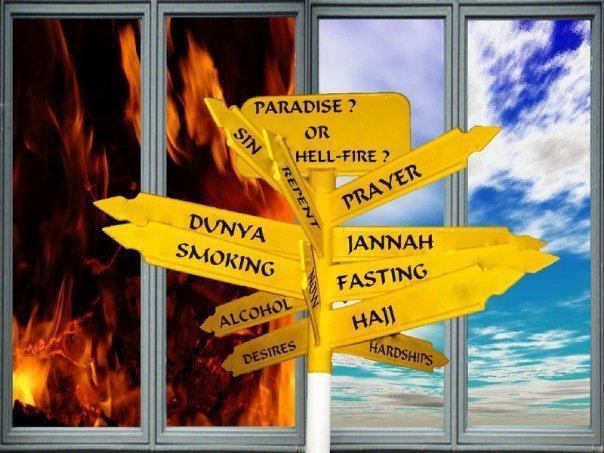Anas
bin Malik رضي
اللّه عنـه reported:
“Paradise is
surrounded by hardships and the Hell-Fire is surrounded by temptations!”
حُفَّتِ الْجَنَّةُ بِالْمَكَارِهِ وَحُفَّتِ النَّارُ
بِالشَّهَوَاتِ
{Ref: Sahih Muslim
2822}
The scholars said:
This beautiful
analogy is from the exquisite, eloquent and comprehensive speech which was
bestowed on the prophet (صلّى اللَّهُ عليه وسلّم). It
means that nothing will help you to reach al-Jannah except going through
hardships, and nothing will lead you to the Hell-fire except whims and
desires. Both are veiled as described, so whoever tears down the veil will
reach what is hidden behind it. So the veil of al-Jannah is torn down by going
through hardships, and the veil of the Hell-fire is torn down by giving in to
whims and desires. And hardships include striving in ‘ibaadah
(worship) and persevering upon that,and sabr in the face of
hardships, and restraining one’s anger, forgiving and having
long-suffering (hilm), giving voluntary charity, having ihsaan (excellent
behavior) with those who mistreat you, having sabr against
desires, and so on.

